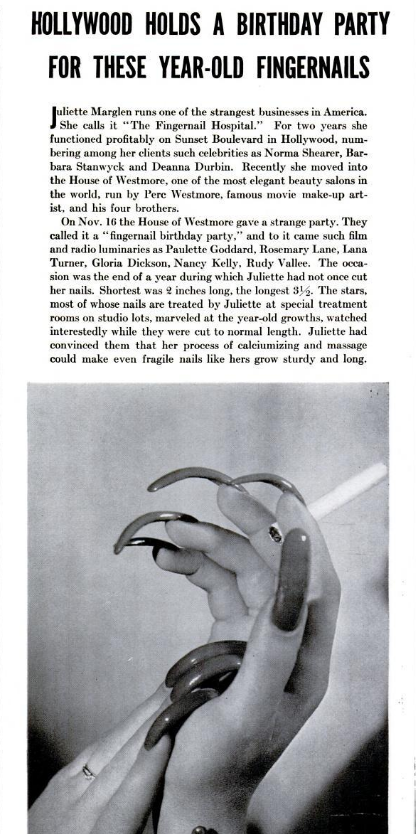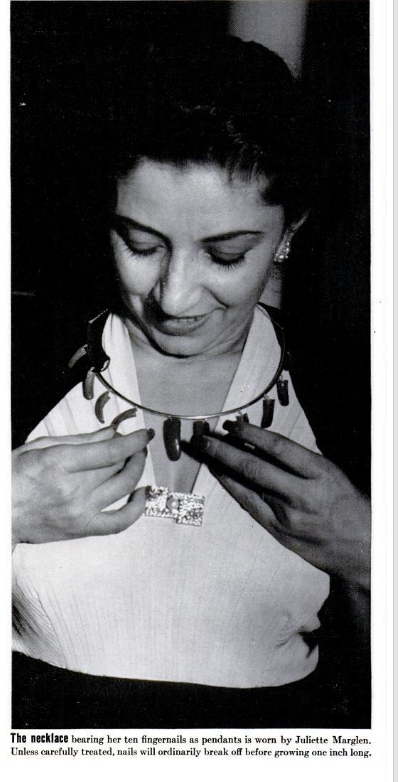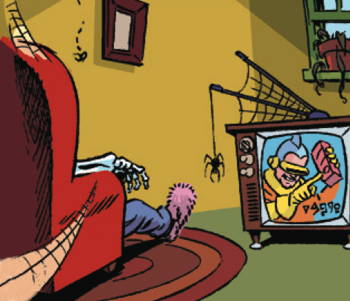April 2021
April 20, 2021
Roger Powell, Human Work of Art
In 1995 Roger Powell was 46 years old and living homeless on the streets of London after the failure of his taxi business. And then, by a strange twist of fate, his life changed and he became a work of art.Film director Tony Kaye had decided to display a homeless person as a work of art at the Saatchi Gallery. So he sent his assistant out to find a homeless person willing to go along with this scheme, and Powell was the one found.

Powell on display at the Saatchi Gallery. Source: alamy.com
Powell sat in the gallery beside a sign explaining that he was for sale as a "human work of art." The price: £1000.
As far as I know, no one offered to buy Powell. Nevertheless, Kaye continued to display Powell at various museums for the next two-and-a-half years, but most of the time not as an official exhibit. Powell would simply walk around the museums while wearing a t-shirt that said "For Sale, Roger, By Tony Kaye, Four Million Pounds." (The sale price had inflated quite a bit.) In return for doing this, Kaye paid Powell a small weekly allowance and gave him some money towards rent.

San Francisco Examiner - Nov 19, 1995
Eventually Kaye lost touch with Powell. Then, in 2002 Powell died. Kaye paid for Powell's cremation and received his ashes. He said he planned to use them to create a painting that would say "Dead Homeless Man." I don't know if he ever completed this work.
More info: upi.com, CSMonitor
Posted By: Alex - Tue Apr 20, 2021 -
Comments (0)
Category: Art, 1990s
Walt Builds a Family Fallout Shelter
Posted By: Paul - Tue Apr 20, 2021 -
Comments (2)
Category: Domestic, Technology, War, Twentieth Century
April 19, 2021
Elephant Bells
A creation of the 1970s. The next level beyond bell-bottoms.

Tampa Bay Times - Oct 15, 1972
Posted By: Alex - Mon Apr 19, 2021 -
Comments (2)
Category: Fashion, 1970s
Unauthorized Dwellings 16

If you walked down Mitte’s Oranienburger Straße at any point between 1990 and 2012, you would have likely noticed a commanding, if dishevelled, structure located just a short distance from the synagogue. Up until five years ago, the second-most visited art attraction in Berlin wasn’t the East Side Gallery or Museum Island, it was this five-storey building: aka Kunsthaus Tacheles. Taken over by artists after the Wall fell in 1990, the building was transformed into a creative commune. It was quintessential post-Wende Berlin: upon their occupancy, the artists launched a legal battle for the property and rescued it from demolition, maintaining a presence for 22 years.
Full essay here.
The Wikipedia page.
Posted By: Paul - Mon Apr 19, 2021 -
Comments (0)
Category: Antisocial Activities, Art, Outsider Art, Unauthorized Dwellings, 1900s, 2000s, 2010s, Europe
April 18, 2021
Cigarette lighter that gives the finger
In 1942, George Horther was granted a patent for what he called an "electric resistance lighter". From what I can gather, lifting the finger activated the lighter. He had received a separate design patent in 1940 for the invention's appearance.
Curiously, in neither patent did Horther ever refer to the significance of the gesture his invention is making, even though that's pretty much the entire point of it.
I imagine he must have intended to sell this as a gag gift, but I can't find any evidence that he ever did manage to market it.

Posted By: Alex - Sun Apr 18, 2021 -
Comments (0)
Category: Inventions, Patents, Smoking and Tobacco, 1940s
Jazzercise
The Wikipedia page.
Posted By: Paul - Sun Apr 18, 2021 -
Comments (1)
Category: Exercise and Fitness, Fads, Money, Music, 1960s, 1980s
April 17, 2021
Why the man of the future may have only one eye
1927: Scientist W.E. Bailey predicted that, in the far future, our descendants may have only "one large, central, cyclopean eye".Of course, who knows what humans may look like in a million years (if there are even any of us still around), but his argument sounds plausible enough to me (with my limited knowledge of neuroscience). Basically he argued that, over the past several million years, our brains have devoted more space to speech, and less to vision. Extrapolating that trend into the future, he concluded that the eventual merging of our eyes into one would be a more efficient use of the brain's resources, and so will probably happen.

Minneapolis Star Tribune - Dec 4, 1927
"Man's field of view," writes Mr. Bailey, "will become smaller and smaller. This, because his need of a wide field is growing less and less. This I say with full realization that we live in an age of automobiles, and that these vehicles render desirable a wide field of view. The automobile is probably a very transitory phenomenon. I even believe that, in the course of countless ages, the two human eyes will come closer together, the bridge of the nose will further diminish and sink (just as the animal snout, in man's line of descent, has been doing for vast aeons of time) and, finally, man's two eyes will again become one—just one large, central, cyclopean eye.
"It is likely that the merely servient (left) eye will shrink away (as the pineal eye has already done) so that the right eye will become the cyclopean. Certain it is that the left eye, even today, is being used less and less continually. Man's binocular and stereoscopic visions are being destroyed. That is the price he pays for his speech center.
"The great cyclopean eye, however, will regain stereoscopic vision by developing two maculae in the one eye, just in the fashion in which many birds have stereoscopic vision in each eye now. Although the field of view will then be narrower than now, the eye will probably be microscopic and telescopic; it will be exceedingly acute for colors, for motion, and for form; and finally, most important of all, it will probably be able to perceive as light many forms of energy which now produce in human eyes no sort or kind of perception.
"Because of the development of a speech center in man, there has come about what is called dominancy and serviency in human eyes, a phenomenon not found in other mammals. This means that, in the human, the brain does most of the seeing through one eye, even when both eyes are open. Dr. Thomas Hall Shastid, ophthalmologist of St. Luke's Hospital, Duluth, has found that from 95 to 100 per cent of the detail of any object comes through the right eye if the person be right-handed; while if the person be left-handed the left eye as a rule, but not always, takes up the major part of the detail. This condition, which he has been unable to observe in any other animal, may eventually result in consequences of vast importance to humanity."

Posted By: Alex - Sat Apr 17, 2021 -
Comments (5)
Category: Science, Anthropology, 1920s, Eyes and Vision
Fingernail Birthday Party—and Necklace
Read the whole story with more pix here.

Posted By: Paul - Sat Apr 17, 2021 -
Comments (0)
Category: Beauty, Ugliness and Other Aesthetic Issues, Body, Human Marvels, Movies, Publicity Stunts, 1930s
April 16, 2021
Arnulf Rainer
An experimental film from 1960 about flicker effect. Or, as one commenter on YouTube puts it, "One of the most horrible things ever in the history of the cinema."The film is named after the artist Arnulf Rainer but it's by director Peter Kubelka. Some more info from wikipedia:
Wikipedia also notes that Kubelka refused to digitize the film because "cinema is a completely different medium which cannot be imitated by the digital medium." But it's on YouTube, so someone digitized it.
Posted By: Alex - Fri Apr 16, 2021 -
Comments (1)
Category: Art, Movies, 1960s
The Jiger
My 2 favorite parts of this video: when they launch off a ramp into water; and the vaguely retro-porn-style musical score that someone added.Wikipedia says this was the very first ATV.
Posted By: Paul - Fri Apr 16, 2021 -
Comments (8)
Category: Motor Vehicles, 1960s
| Get WU Posts by Email | |
|---|---|

| Who We Are |
|---|
| Alex Boese Alex is the creator and curator of the Museum of Hoaxes. He's also the author of various weird, non-fiction books such as Elephants on Acid. Paul Di Filippo Paul has been paid to put weird ideas into fictional form for over thirty years, in his career as a noted science fiction writer. He has recently begun blogging on many curious topics with three fellow writers at The Inferior 4+1. Chuck Shepherd Chuck is the purveyor of News of the Weird, the syndicated column which for decades has set the gold-standard for reporting on oddities and the bizarre. Our banner was drawn by the legendary underground cartoonist Rick Altergott. Contact Us |

